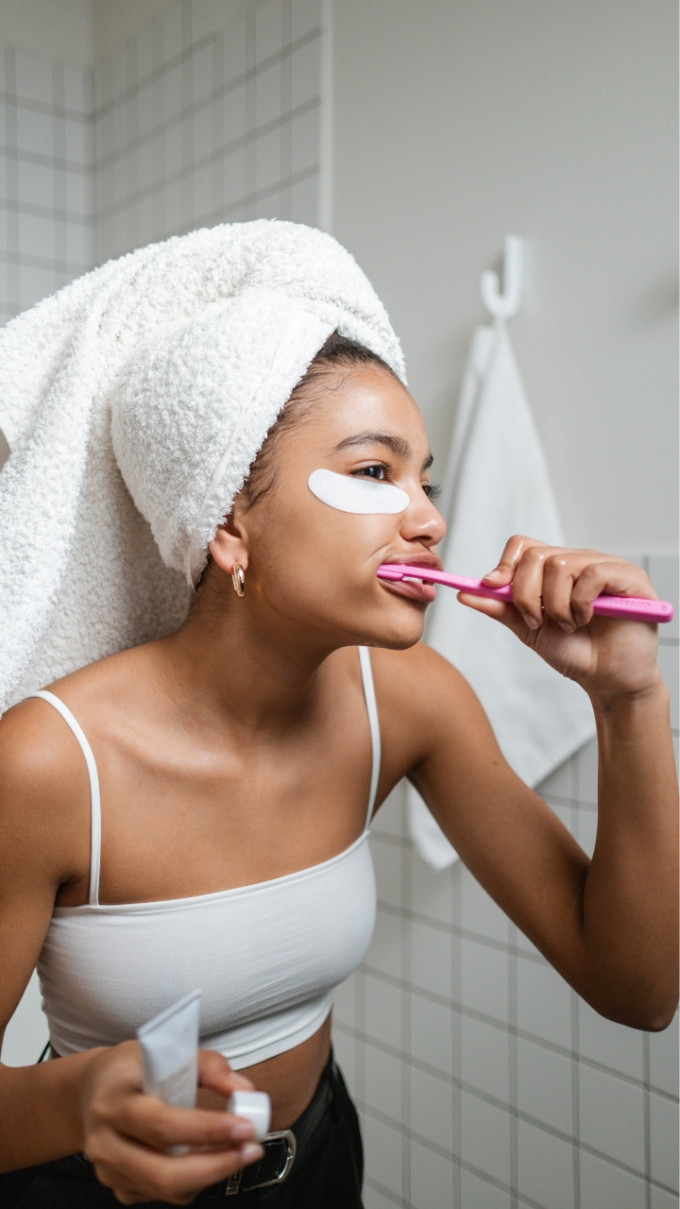Here’s how often you should change your toothbrush
Brushing your teeth twice daily is a cornerstone of good oral hygiene, but are you using the right tool for the job? Your toothbrush’s effectiveness hinges on its condition, and Dr Nisha Thakkar, a cosmetic dentist at Dr Karishma Aesthetics, advises replacing it more often than you might think.
Dr Thakkar emphasises that toothbrush bristles are designed to remove plaque and food particles from your teeth and gums. However, worn-out bristles become frayed and lose their cleaning power. This can lead to a buildup of plaque, which can increase the risk of developing cavities and gum disease, she said.

What is the toothbrush rule?
As a general rule, Dr Thakkar recommends changing your toothbrush every 2-3 months. This timeframe ensures that the bristles remain effective in cleaning your teeth. However, some situations might warrant an earlier replacement, she said:
Visible Wear and Tear: If you notice the bristles becoming frayed or bent before the 2-3 month mark, it’s time for a new brush.
After an Illness: To prevent the spread of germs, Dr Thakkar advises replacing your toothbrush after you or a family member has been sick. This helps to prevent re-infection.
 A clean mouth is less likely to harbour bacteria that contribute to bad breath. (file)
A clean mouth is less likely to harbour bacteria that contribute to bad breath. (file)
The benefits of regular replacement of your brush
By following these guidelines for toothbrush replacement, you can enjoy several benefits for your oral health, said Dr Thakkar:
More Effective Cleaning: Fresh bristles are better at removing plaque and food particles, leading to a cleaner and healthier mouth.
Reduced Risk of Cavities and Gum Disease: Proper plaque removal helps prevent the formation of cavities and the development of gum disease.
Fresher Breath: A clean mouth is less likely to harbour bacteria contributing to bad breath.
Making the switch a habit
To ensure you’re replacing your toothbrush regularly, consider these tips:
Mark your calendar: Set a reminder on your phone or calendar to change your toothbrush every 2-3 months.
Buy in bulk: Purchasing several toothbrushes at once can help you stay stocked up and avoid forgetting to replace them.
Keep a spare: Have a new toothbrush readily available to switch it out immediately after an illness.
By following these recommendations, you can ensure your toothbrush is always an effective tool for maintaining good oral hygiene and a bright, healthy smile.
DISCLAIMER: This article is based on information from the public domain and/or the experts we spoke to. Always consult your health practitioner before starting any routine.
📣 For more lifestyle news, click here to join our WhatsApp Channel and also follow us on Instagram
Disclaimer: The copyright of this article belongs to the original author. Reposting this article is solely for the purpose of information dissemination and does not constitute any investment advice. If there is any infringement, please contact us immediately. We will make corrections or deletions as necessary. Thank you.

